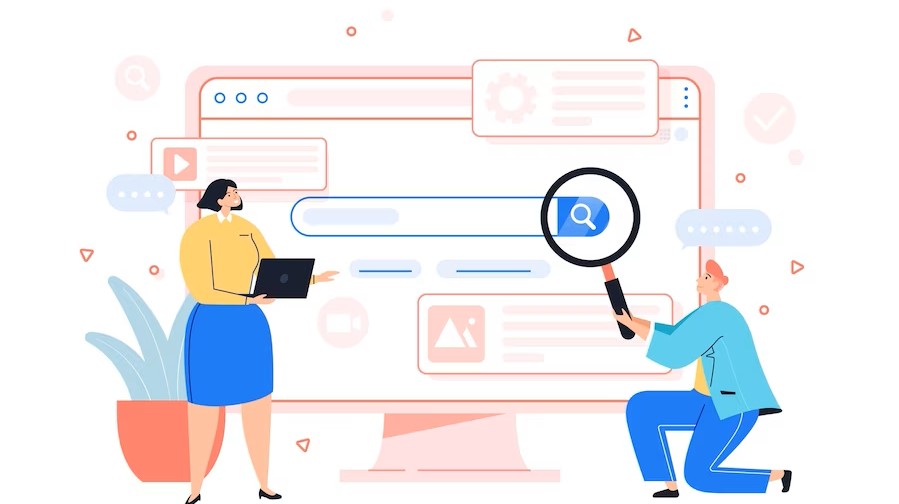Google’s CEO, Sundar Pichai, announces the integration of artificial intelligence (AI) into the company’s search engine, following Microsoft’s ChatGPT integration in Bing. Read more about how Google aims to improve user experience and compete in the evolving search engine landscape.
Google to Enhance Search Engine with AI Support, Inspired by Microsoft’s ChatGPT-powered Bing
Google CEO Sundar Pichai has confirmed that the company will be incorporating artificial intelligence (AI) into its search engine, following the footsteps of Microsoft’s ChatGPT-powered Bing. This decision comes as Google faces competition from ChatGPT and other emerging technologies in the search engine market.
Google’s Commitment to Improving User Experience through AI Integration
With the integration of AI into its search engine, Google aims to enhance the user experience by providing more accurate and responsive results to a variety of search queries. Pichai believes that AI technology can help fulfill in-depth requirements and knowledge gaps that currently exist in search results, allowing users to engage in conversational interactions with the search engine.
Google’s Pioneering Efforts in Large Language Models (LLMs)
Google has been at the forefront of developing large language models (LLMs) that can mimic human responses to questions. The company has now decided to leverage this technology to improve its search engine, allowing users to ask questions and engage with LLMs in a conversational manner, similar to ChatGPT.
Google’s Response to Competition and Investor Pressure
Google’s decision to integrate AI into its search engine comes in response to competition from emerging technologies like ChatGPT and investor pressure to cut costs. Microsoft’s enhanced version of Bing, powered by ChatGPT, has been gaining traction in the search engine market, prompting Google to take similar steps to stay competitive.
Google’s Bard and the Need for Iteration
Google’s own chatbot, Bard, has not received significant consumer excitement and has been deemed less reliable compared to ChatGPT and Bing. Pichai acknowledges that the company has been iterating to improve Bard, but timelines may change based on the evolving industry landscape. Despite this, Pichai expresses enthusiasm about the adoption of AI technologies by consumers.
“Google CEO Sundar Pichai’s Optimistic View on the Impact of AI in Software Engineering Jobs”
The Potential of AI-powered Search Engines to Reshape the Industry
The integration of AI into Google’s search engine underscores the company’s commitment to staying at the forefront of technological advancements. The use of LLMs in search engines is a relatively new development that has the potential to reshape the industry by providing more accurate, responsive, and conversational search experiences for users.
- Google is taking a cue from Microsoft and plans to integrate artificial intelligence (AI) capabilities into its search engine, according to a recent announcement by Sundar Pichai, the CEO of Google’s parent company, Alphabet Inc. This move comes in response to the growing competition from ChatGPT and other AI-powered search engines, as well as investor pressure to cut costs.
- Google’s decision to integrate AI into its search engine was inspired by Microsoft’s successful integration of ChatGPT into Bing, which has given Microsoft an edge in the search engine market. Microsoft’s CEO, Satya Nadella, believes that AI-powered search engines will reshape the industry, much like earlier advancements in personal computers and cloud computing.
- Google’s current search engine setup lacks the ability for users to engage in conversations and obtain in-depth knowledge on their queries. However, with the integration of AI, users will be able to ask questions and interact with large language models (LLMs) in the context of their search queries, similar to how they can interact with ChatGPT.
- Google had previously launched its own chatbot called Bard, but it has not gained much traction among consumers, as acknowledged by Pichai. He stated that the company was “iterating to ship something” and that timelines may change given the industry’s evolving landscape.
Nevertheless, Pichai expressed his excitement about the consumer interest in adopting these technologies, and Google’s commitment to improving the user experience by integrating AI into its search engine.
The integration of AI into Google’s search engine is part of the company’s efforts to keep up with the evolving search engine landscape and improve user experience. The use of LLMs in search engines is a relatively new development with the potential to reshape the industry, and Google aims to leverage this technology to enhance its search capabilities.
In conclusion, Google’s decision to integrate AI into its search engine, inspired by Microsoft’s ChatGPT-powered Bing, reflects the company’s commitment to improving user experience and staying competitive in the evolving search engine market. With the potential of AI-powered search engines to reshape the industry, Google’s move aims to provide more accurate and conversational search experiences for users, while acknowledging the need for iteration and improvement in its own chatbot, Bard.

